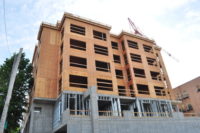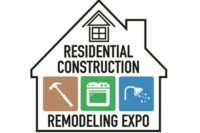“Spending on improvements to owner-occupied housing is nearly equal to that of new residential construction,” saidPaul Emrath, NAHB’s vice president for survey and housing policy research. “NAHB predicts that residential remodeling will rise 8.9 percent in 2012.”
While overall housing market conditions continue to create a drag on remodeling growth, the growing trend among home owners to remain in their homes and remodel has provided a boost to the remodeling market.
“Remodelers are poised to continue our industry’s gradual improvement as we start 2012,” said 2012 NAHB Remodelers ChairmanGeorge “Geep” Moore Jr., CGR, CAPS, GMR, a remodeler from Elm Grove, La. “It is our hope that home owners who want to remodel this year face less constrictions from lack of financing, fear of lost equity and challenging appraisals.”
In the fourth quarter of 2011, the RMI component measuring current market conditions rose to 48.4 from 43.0 in the previous quarter. The RMI component measuring future indicators of remodeling business was also positive, increasing to 44.8 from 40.4 in the previous quarter.
The RMI is based on a quarterly survey of professional remodelers, whose answers to a series of questions were assigned numerical values to calculate two separate indices. The overall RMI averages ratings of current remodeling activity with indicators of future activity. An RMI below 50 indicates that more remodelers report market activity is lower (compared to the prior quarter) than report it is higher.
Source: NAHB

